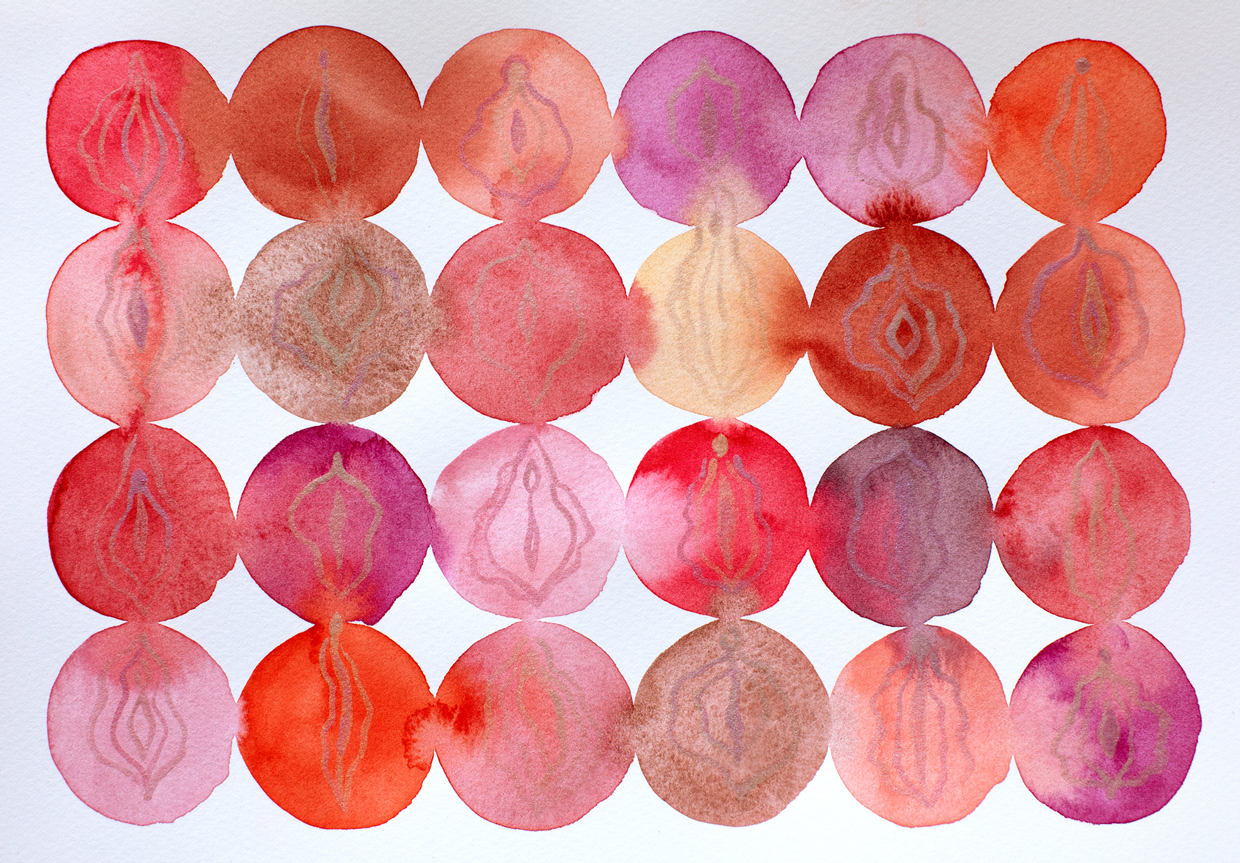If there are any three words better suited for striking fear into the hearts of vulva-owners everywhere than “dead vagina syndrome” I hope I never hear them. The terrifying “syndrome” warns against the supposed dangers of using a vibrator too much: namely the loss of sensation in the clitoris, labia, or surrounding pubic area. Dead vagina syndrome is scary, misogynistic, and also totally made up, according to gynecologists.
“This is a big myth I hear on social media,” says Dr. Jennifer Lincoln, a board-certified OB-GYN in Portland, Oregon and author of the new book Let’s Talk About Down There. Dr. Lincoln devotes a lot of her time to dispelling harmful women’s health myths like dead vagina syndrome to her community of 2.3 million followers on TikTok and this one is particularly mind-boggling. “I have to wonder if this myth originated from penis-owners who felt intimated by their partner’s sex toys,” she says. “It sure seems suspect.”

For the record, a sex toy is not going to break your vagina, vulva, or any other part of your anatomy. “Vibrator use should not cause any injury or damage so long as you are using it in a typical way and aren’t continuing if it is causing you any pain,” confirms Dr. Lincoln.
Can you have too much of a good thing?
While there’s no risk of permanently losing sensation down there from using your vibrator “too much,” is there any nugget of truth to the myth of dead vagina syndrome? Is it ever normal to feel a little numb down there? “It can be common to feel a slight tingling or numbing after vibrator use, but this can also happen with orgasm when a vibrator wasn’t involved,” says Dr. Lincoln. This is simply your body’s natural reaction to the crescendo of nerve stimulation, she explains, not a warning that you should lay off your sex toys. “[Sensation] will absolutely rebound, usually in a matter of minutes,” Dr. Lincoln says.
You might also find yourself on the other end of the spectrum— experiencing a heightened sensitivity post-orgasm so intense you can’t stand further touch. Call it the alive vagina experience.
“The only way you can overuse a vibrator is if it is interfering with your daily life — like you need to go to work but can’t because you are so into self-pleasure that you can’t break away,” Dr. Lincoln says. “This is more a psychological issue than a physical one.” For many people, sexual pleasure is a form of self-care — an empowering pathway to wellbeing that you should feel no shame in embracing. But it’s no different from food, or wine, or working out, or any of the things that bring you pleasure in that if you find yourself constantly canceling plans to compulsively do that activity, you may have a problem.
From a physical standpoint, “if you find that your vulva or vagina feels irritated or in pain after using your favorite vibrator, it may be a sign you need to turn down the setting or consider pairing it with lubrication,” says Dr. Lincoln. An intense vibration setting might cause some temporary tingling or even numbness, “but fear not,” Dr. Lincoln says, “your vagina is not dead.”
Dealing with a lack of “down there” sensitivity
There are of course reasons you might be experiencing numbness or a lack of sensitivity in your vulva or vagina. But in these instances, it’s more likely being caused by a medical issue than your beloved vibrator. “Medical causes of lack of sensitivity are often related to nerve injury,” says Dr. Lincoln. This can be the result of a pelvic floor injury from physical trauma, giving birth, or even surgery. Feeling less sensation in your vulva or vagina can also be related to health conditions such as diabetes, which can cause nerve damage, or an autoimmune disease such as Lupus (though you would likely be experiencing other symptoms in these cases as well).
The inability to orgasm or lack of sensitivity and arousal in your nether regions can also be the result of psychological issues. “A past history of personal trauma or any issues between you and your partner can make it hard to be in the headspace to feel good,” Dr. Lincoln explains. “That can lead to a lack of sensitivity from a mental standpoint, which is very real.” There’s also evidence that stress might play a role. A study published in the Journal of Sexual Medicine found that women who reported chronic stress had lower levels of genital sexual arousal when watching erotic content even though they reported similar levels of phycological arousal.

The good news is, your vagina is most definitely not dead and your love for your vibrator certainly didn’t break it. “Many of these issues can be addressed and improved with the right treatments,” says Dr. Lincoln. Those treatments might range from pelvic floor physical therapy, to deal with nerve damage or trauma, to counseling to address stress, relationship issues, or past traumas. “Treatment is all based on what the cause is — it is definitely not one-size-fits-all,” she says.
There is one important thing you should keep in mind if you bring a concern to your doctor, Dr. Lincoln adds. “If you encounter someone who tells you to just drink a glass of wine and relax, please run and get another opinion,” she says. “Those attitudes are never helpful and put the guilt on us for being broken and uptight. You deserve better answers than that.”
We only recommend products we have independently researched, tested, and loved. If you purchase a product found through our links, Sunday Edit may earn an affiliate commission.








